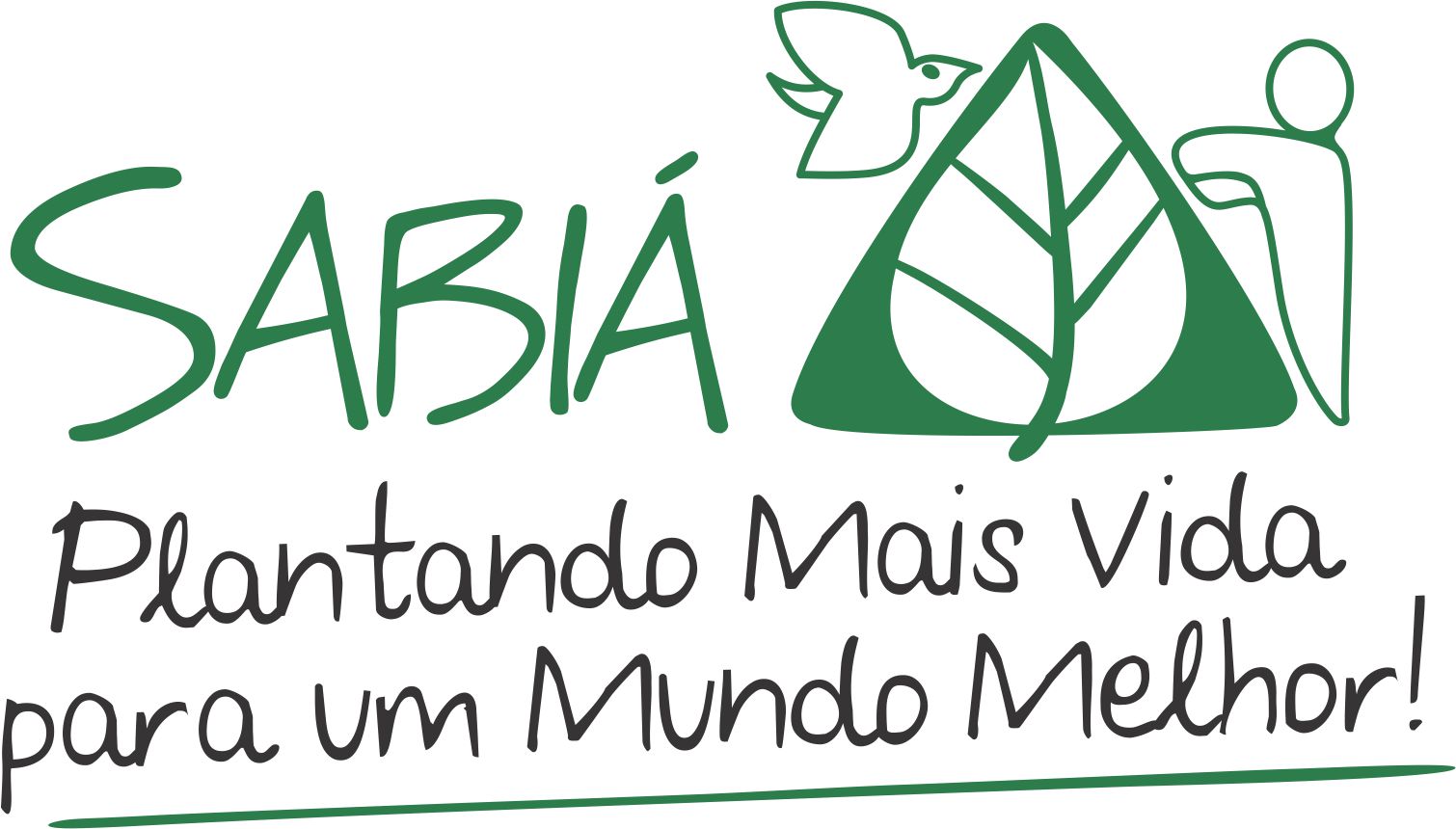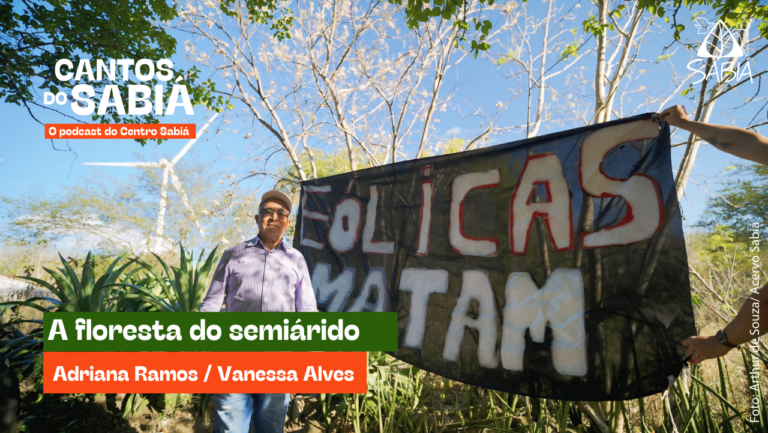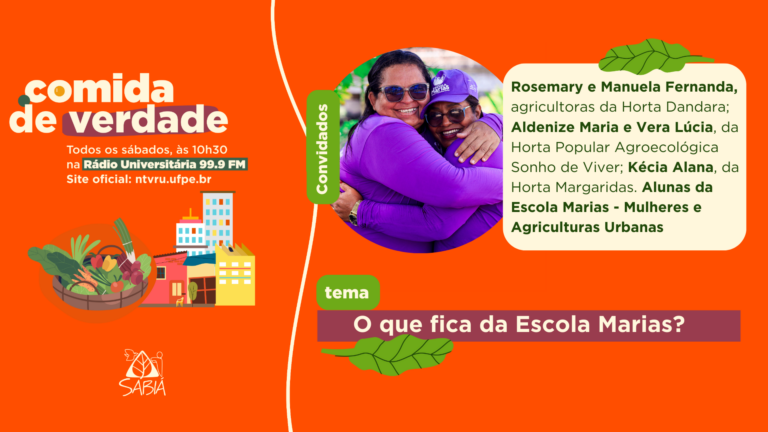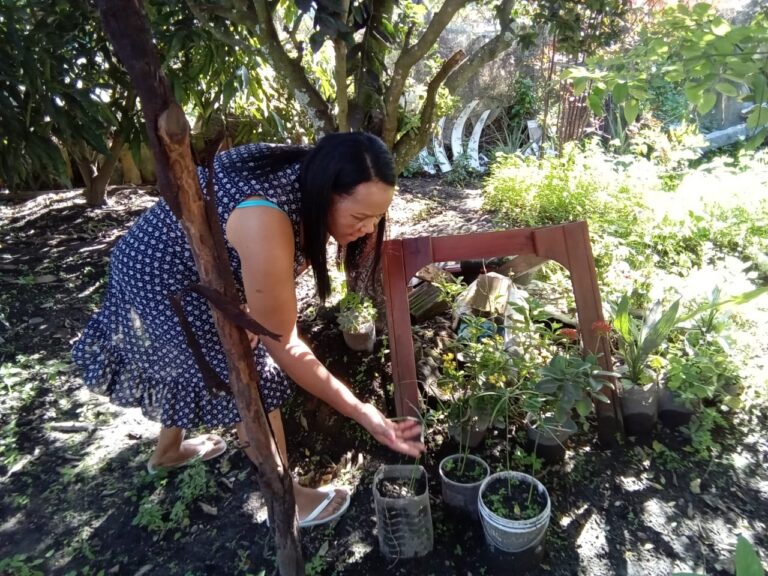Exchange between Plataforma Semiáridos América Latina and Isla Urbana visits experiences assisted by Centro Sabiá in northeastern Brazil
Darliton Silva
Communicator for Centro Sabiá and Plataforma Semiáridos América Latina

On November 22 and 23, through an exchange promoted by the Church World Service (CWS) and Centro Sabiá, members of the Semiarid Latin America Platform and the Mexican organization Isla Urbana learned about experiences in marketing, water storage and reuse, food production and processing, and urban agriculture.
The exchange passed through the cities of Surubim, Santa Maria do Cambucá and Recife, allowing the exchange students from Argentina, Mexico, Colombia and El Salvador to get a closer look at the work that the Sabiá Center does with farming families in the state of Pernambuco.
Surubim’s Agroecological Fair was the first meeting point for visitors, farming families and consumers looking for fresh food produced without poisons. The fair has existed since 2019, it is the result of the work of the Sabiá Centre together with partner organizations in the region, it emerged from a political and organizational process that gave more autonomy to farming families and created conditions both to manage the space and to guarantee support with the municipal administration and it takes place every Wednesday.

In the second part, the group visited the farm of Dona Marinalva, a farmer from the municipality of Santa Maria do Cambucá and mother of three, where they had the opportunity to learn more about the processes of storing and reusing water using social technologies, such as first and second water cisterns, which capture rainwater for human consumption and food production, respectively. And the gray water reuse system, which removes impurities from the water coming out of the sink and shower. It is worth noting that reuse water is only used for production.
For Mrs. Marinalva, the suffering was great before, because no one had water, no one planted crops and no one raised animals. “Having access to water is a very good life project, because we have water to drink, to feed the animals, to water the plants and to wash clothes. The best project invented in Brazil was the cisterns. Without water we can’t live,” said Marinalva.
The delegation then went to the headquarters of the Cambucá Association, located in the same town as Dona Marinalva, to hear about ways of organizing collectively to face adversities that are beyond their control, such as droughts. And also to understand a little about the method of producing cajuína, a drink made from cashews, an abundant fruit in the area.
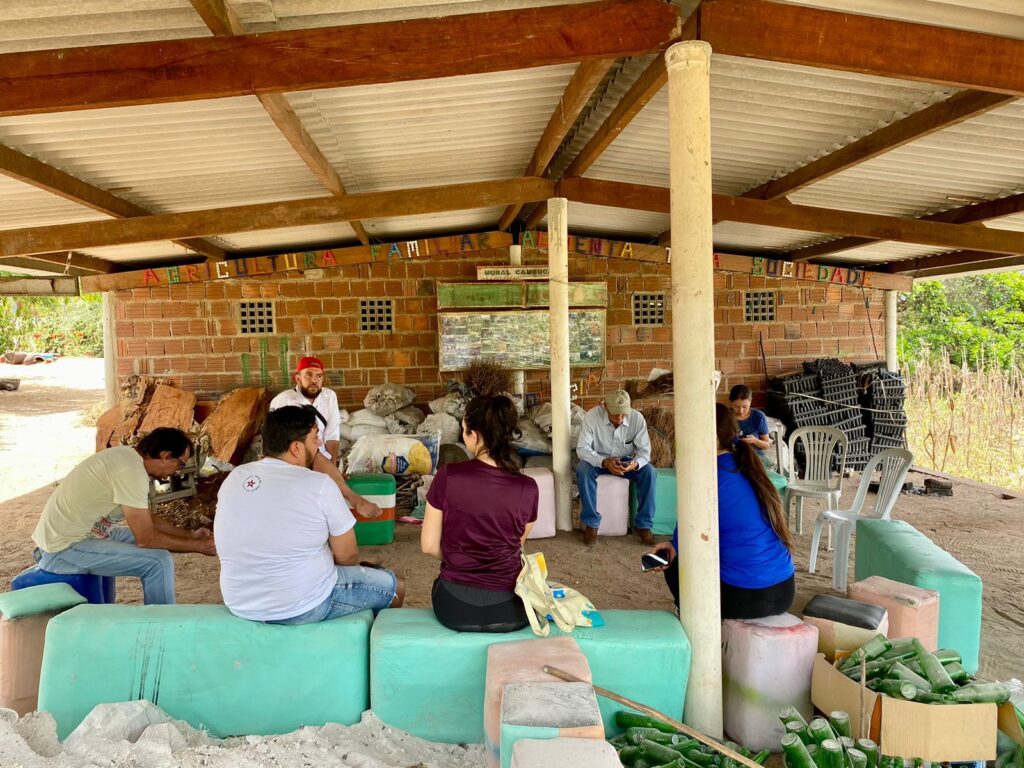
Finally, the collective visited the Dandara Popular Agroecological Garden, an initiative that began in 2020, during a critical moment in the Covid-19 pandemic. The garden was set up with the aim of producing poison-free food and medicinal plants so that families in the community can reduce the impacts of social inequality, especially food insecurity, generated by a model of society where profit is more important than people, in a country where more than 33 million people go hungry.
The purpose of the exchange was to bring together the actions promoted by the members of the Semiarid Platform and the Mexican organization, in order to seek synergies and mutual learning about water harvesting and other technologies. In this sense, representatives of the organizations Foundation for Development in Justice and Peace [FUNDAPAZ], National Foundation for Development [FUNDE], World Service of Churches in Latin America and the Caribbean (CWS) and Isla Urbana were able to observe the capacities of farming families, learn about their realities, challenges and dreams. During each visit, each practice identified was checked in detail by the participants, eliminating doubts and generating information that can be replicated in their regions.
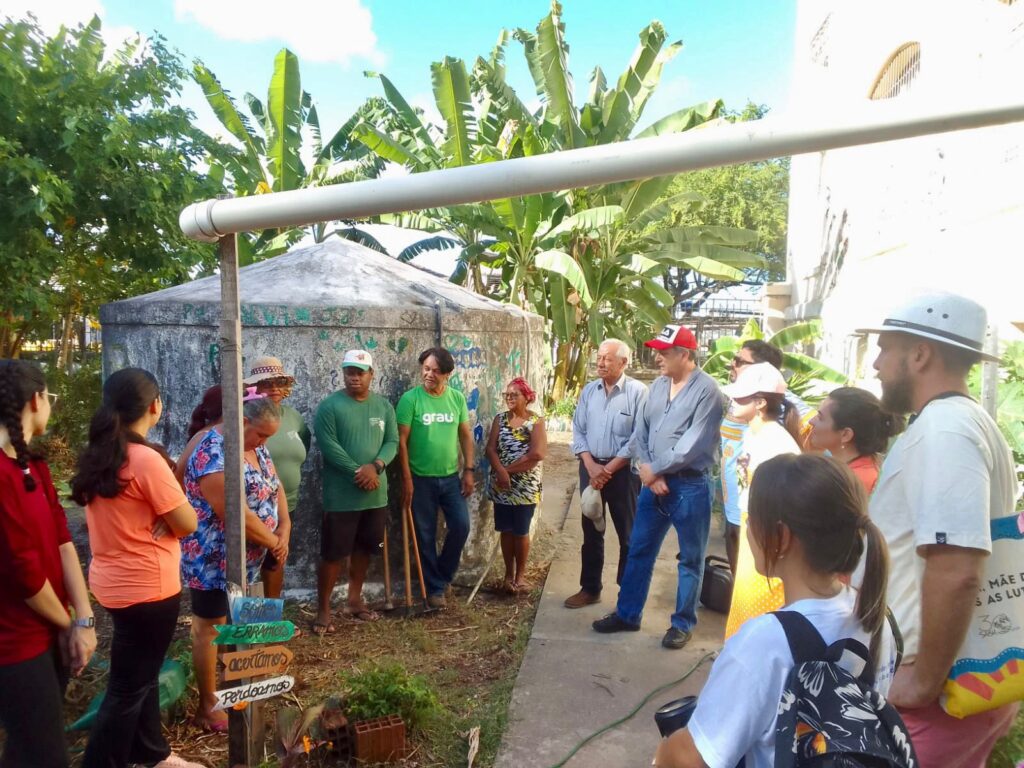
According to Davi Vargas, president of Isla Urbana, the most interesting thing was to learn about the 1 Million Cisterns program and the second phase of the 52,000-liter cisterns, which have been integrated into an agroforestry package to solve the water problem and integrate agroecological components. “This is an integral and super interesting solution on the scale that they are doing here in Brazil. I have a lot to think about and how we can replicate it in Mexico.”
Also according to Davi, the action now is to put on the map the importance of supporting the Semi-Arid zones in Mexico, based on the experience we had in the exchange with the Semi-Arid Platform, in order to really have solutions that can contribute to combating climate change, droughts and overexploitation of aquifers.”I think it’s very important to have this defined, because these are the zones in Mexico, Latin America and the world that are going to run out of water.”
Since September 2022, the focal point of the Latin American Semi-Arid Platform, which has operated for the last 10 years in the Gran Chaco region of Argentina under the care of FUNDAPAZ, has moved to the Brazilian Semi-Arid, in the state of Pernambuco, under the responsibility of Centro Sabiá, the organization hosting the exchange.
Nothing found.

